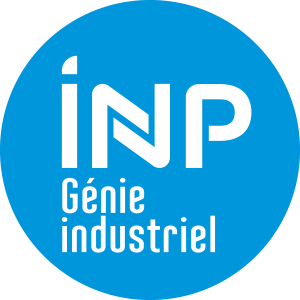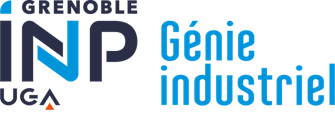Number of hours
- Lectures 24.0
- Projects -
- Tutorials -
- Internship -
- Laboratory works 24.0
- Written tests 1.5
ECTS
ECTS 3.0
Goal(s)
Rationale for the introduction of the module:
To provide an overview of the economist way of thinking and knowledge of the fundamental economic tools and topics (micro-economics of consumer and producer, industrial organization (IO), markets).
To apply these tools and reasoning way to case studies.
The course is a prerequisite for other economics courses (Industrial Economics and Sustainable Economics)
Method
The lessons are organized as a master level class in economics. They are based on readings of textbooks (before the class) and in class presentations by students and discussions of case-studies with lecturers
Specific knowledge
This course presents the main tools for economics analysis useful for industrial engineers. The aim is to equip students with an understanding of both the demand and the supply side of a market, at the micro and the macro levels. Engineer’s world is facing complex situation, economist tools give a useful and complementary point of view to decide in complex situation. Economics analysis of markets and organizations is fundamental for industrial engineers who aim at participating to industry efficiency in term of value creation and profitability. Analyzing consumption behavior, production strategy and individual / organization interactions are the skills to be developed in this course.
The course is organized in three main topics: Economics of consumption and economics of production and markets analysis. These three parts are complemented with illustrations and case study of industrial engineering facing sustainable problems.
General knowledge
By participating and engaging in this course, students should be better able to analyze, model and solve (when possible) economic problem. Student should be able to propose synthetic survey of problem and to produce models of interactions between economic agents at stake in a problem. They are expected to conduct critical analysis of the hypotheses underlying models and of their results.
Students should be capable of presenting (oral and written) synthetic analysis of a problem, of demonstrating logical argument, of conducting individual and team work.
Content(s)
Introduction: Market, supply and demand
I. Economics of demand
a. Theory of the consumer
b. Consumption decision
II. Economics of production
a. Theory of the firm
b. Firm's cost and profit
III. Markets Analysis
a. Market demand
b. Market supply
c. Welfare and market efficiency
None
This weighting is compatible with distance teaching and distance exam
CC = Continuous assessment (Multiple Choice Questions tests, work team, case study, etc.)
E1 = Final oral or written exam from the 1st exam period
E2 = Final oral (or written exam) from the 2nd exam period
N1 = Final mark from the 1st exam period
N2 = Final mark from the 2nd exam period
***********************************
N1 = 0.3 (grade CC)+0.7 E1
N2 = if E2 > 0, max(E1,E2) else N2=E2
The exam is given in english only 
The course exists in the following branches:
- Curriculum - Master 1 GI SIE program - Semester 7 (this course is given in english only
 )
) - Curriculum - Master 1 GI program GID - Semester 7 (this course is given in english only
 )
)
Course ID : WGUS1014
Course language(s): 
You can find this course among all other courses.
Church, J. R. and R. Ware (1999), Industrial Organization: A Strategic Approach, Irwin McGraw-Hill, 920p.
MasColell, Whinston, Green (2004), Microeconomic Theory, Oxford University Press, 998p.
Pepall, L. , Richards D. and G. Norman (2008) Industrial Organization : Contemporary Theory and empirical applications, Wiley-Blackwell, 720p.
Stiglitz J.(2006) Economics, Norton.
Tirole, J. (1988), The Theory of Industrial Organisation, The MIT Press, 479p.
Varian R.H. (2006), Microeconomic analysis, Norton.



